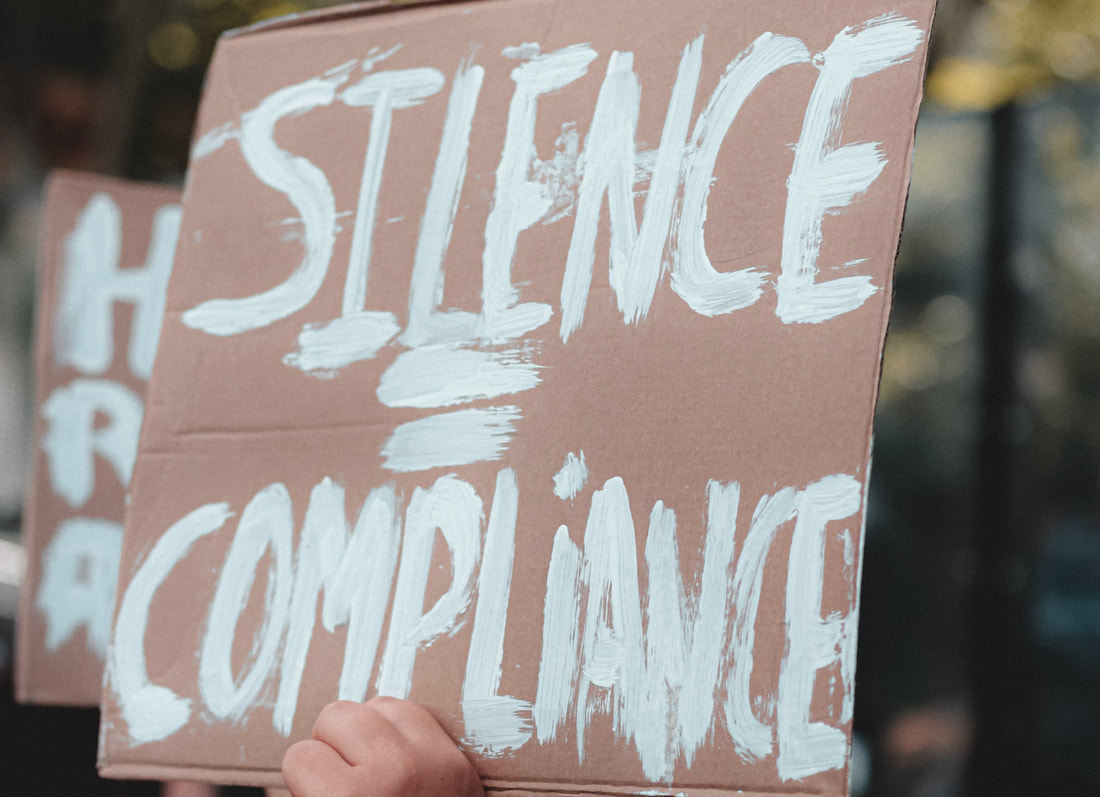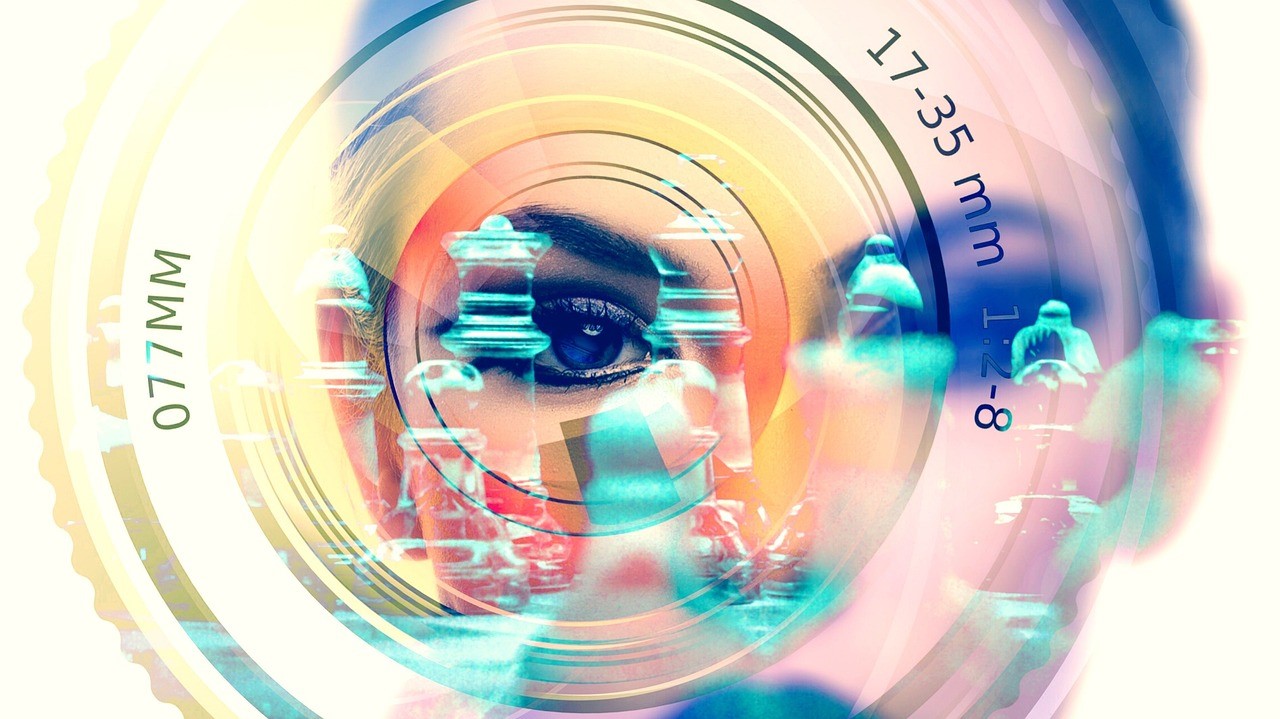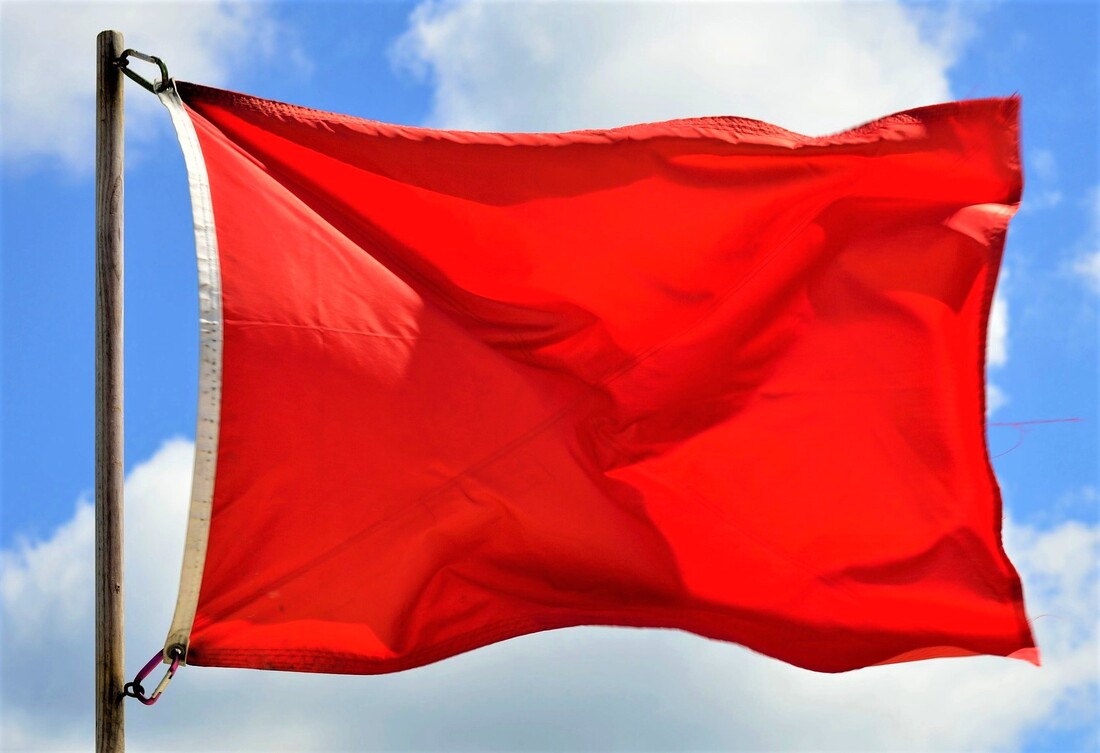|
‘I have always felt that ultimately along the way of life an individual must stand up and be counted and be willing to face the consequences, whatever they are. If we are filled with fear, we cannot do it. And my great prayer is always that God will save me from the paralysis of crippling fear, because I think when a person lives with the fear of the consequences for their personal life, they can never do anything in terms of lifting the whole of humanity.’ (Martin Luther King) I know that fear. I have sometimes experienced it as a vague, background yet seemingly ever-present existential angst. At other times, it has been a response to a specific perceived threat, whether real or imagined, that triggers an anxious feeling. At such times I have learned…and I’m still learning…to pause, breathe, pray and try not to panic. Fight-flight-freeze is an instinctive rather than reflective response that can leave us feeling stressed, powerless and stranded. A real challenge is how to avoid feeding that fear. We may play out all kinds of catastrophic scenarios in the imagination, an endless list of what-if scenarios, amplifying our worst anxieties. We may avoid people, situations or relationships, a kind of flight response, to avoid the risk of our fears actually materialising. Our world may become smaller as we shrink back, self-protect, attempt to keep ourselves safe from harm. (And sometimes that’s a price worth paying.) In his astonishing autobiography, however, Martin Luther King recounts the way he found to face the dangers (which included relentless physical threats, bombing of his home and, ultimately, assassination) – inherent to his calling to address deep-rooted social injustice – and yet still to persevere. It was to face directly his fear of death before God and, by faith, to let go of that fear. That released him to be the remarkable and courageous role model we still admire today.
8 Comments
‘It is not power that corrupts but fear. Fear of losing power corrupts those who wield it and fear of the scourge of power corrupts those who are subject to it.’ (Aung San Suu Kyi) I ran a 3-day workshop in the Philippines for students who were about to graduate from a university for the poor. As we talked about their role and career aspirations for the future, I invited them to do role-plays that would, I thought, enable them to prepare for interviews and increase their chances of success. They smiled, albeit kindly, at my naivety. In role play after role play, with typical Filipino creativity and playfulness, the students depicted scenarios in which getting a job had nothing to do with personal merit and everything to do with whom the applicant knows or is connected to, and what level of contribution for expenses (bribe) the applicant is willing and able to pay to those conducting the interviews and making the appointment decisions. I felt astonished and depressed. Endemic corruption saps the life and energy out of people and societies and deprives them of so much talent and potential. I was intrigued to explore this further so asked the students how much money they would need to pay to get a job. They responded that such forms of corruption are culturally-coded euphemistically so that, in effect, everyone knows what game is being played without anyone explicitly admitting it. For instance, if a student were to be invited to an interview at 2.00pm, it means they will need to pay 20k pesos. If at 4.00pm, then 40k pesos. If they don’t turn up with the required cash, or are not connected to a suitable sponsor, they will be offered a post-rationalisation (excuse) for their apparent failure. This encounter was certainly an eye-opener for me. We moved on to look at other ways in which corruption manifests itself in societies around the world; e.g. in payment of financial incentives (backhanders) to secure specific political policies, judicial outcomes or commercial contracts. Media manipulation, attacks on press freedom, silencing of political opponents, undermining of democratic structures and civil society, monopolisation of markets: all undermine social and economic accountability and opportunity. The biggest challenge when corruption becomes thoroughly pervasive is where and to whom to go to address it. Speaking truth to ourselves can be hard enough to endure. Speaking truth to power can lead to alienation…or to a bullet. ‘Hippopotomonstrosesquippedaliophobia is one of the longest words in the dictionary, and ironically, it means the fear of long words. It originally was referred to as Sesquipedalophobia but was changed at some point to sound more intimidating.’ (Yalda Safai) You couldn’t make it up. Who would create a word like that – and why? One theory is that all professional fields create their own jargon, partly as a convenient shorthand for people working in that field and partly as an implicit status symbol. After all, if I know what the words mean and you don’t, that places me on a pedestal. It signifies I’m an expert – and you’re not. I did some work with a professional UK charity that wanted to change its brand tone of voice. (There you go: a bit of brand jargon). 'Tone of voice' means something like 'organisational personality'. Essentially, they wanted to change the way they express themselves in order to change the way in which they are perceived and experienced by those they want to work with. As part of the change, they decided to write in ways that one might ordinarily speak. It’s one of those curious cultural things in English, like in some other languages too, that we tend to write in one way and speak in another, even using different words to mean the same thing. Spoken words tend to be simpler and shorter. So, they set about de-jargonising their written jargon. Here are some examples they used to illustrate this principle, replacing written language with spoken – request: ask; require: need; advise: tell; retain: keep; endeavour: try; terminate: end. This made their communications feel less formal and more personal and conversational; especially when they also used first and second person (I/we/you) pronouns and active voice. (See how I slipped in a bit of grammatical jargon there?). So, language is important. A change of language can reshape the ways in which people and groups perceive, experience and relate to us, and to one-another. Language carries subtle emotional and cultural associations too, influencing how we (and others) feel, what we believe – and how we are likely to respond. ‘Two roads diverged in a wood, and I — I took the one less travelled by.’ (Robert Frost) It was in a dark, cigarette smoke-filled pub one night. The trade union reps sat behind a long wooden table, cluttered with half-full beer glasses. We about-to-graduate apprentices sat opposite, waiting to be called forward. (It was in the days of closed shop when qualified trades people could only be employed if they held union membership). At the time, I supported the value of trade unions in principle, yet felt dismayed and disillusioned by the corruption that this source of power had created. I noticed my colleagues often lived in fear of the union rather than represented by it. If you said or did something that challenged or upset union leaders, you risked losing your union card and therefore your job. One by one, my fellow apprentices stepped up to the table. ‘Raise your right hand. Do you swear to abide by the rules of the trade union?’ ‘Yes.’ ‘OK, go and sit down.' My turn came. ‘Do you swear…?’ ‘No’, I replied. ‘I have no idea what the rules of the trade union are.’ The panel looked bemused. ‘You really want to read the whole rule book before you agree?’ ‘Yes’, I replied. The shop steward thrust a copy into my hands then ejected me forcefully from the meeting. ‘Wait outside until we call you back in.’ I skimmed through the book then, on return, insisted I was exempted from default political party contributions, as was my right according to the rules. They looked intensely frustrated but had to consent. I don’t think such encounters changed the trade union, but they did change me. Some months later, I was sent on a 2-week residential apprentices' programme that aimed to stimulate personal leadership qualities. I challenged the senior managers there with whom, providentially, I had opportunity to speak. ‘Why invest in this programme when the prevailing management behaviour in the workplace is so autocratic? We need to change culture, not just individuals’. They looked deeply uncomfortable yet I held my ground. (They had, after all, encouraged personal leadership). At the formal dinner of the final evening, they invited me to sit at the top table alongside the most senior leader for that region. I was learning to navigate my way through power structures and systems and to exercise personal and political agency. [See also: Pivotal points] ‘When trouble arises and things look bad, there is always one individual who perceives a solution and is willing to take command. Very often, that person is crazy.’ (Dave Barry) We can think of leadership as the property of a structure, in which a person designated as a 'leader' holds particular responsibilities and has, at least in principle, the hierarchical authority needed to fulfil them. We can also think of leadership as an intrinsic property of an individual. In this sense, leadership is something that resides within and emanates from a person, something that she or he has and does. This is the realm of competency frameworks and of leader-development initiatives. We can also think of leadership as the property of a group; for instance, a leadership team. In this idea, shared leadership is something exercised by a collective, where a diverse united group is, in potential, more than the sum of its parts. We can also think of leadership as a property of a dynamically-complex eco-system, in which acts of leadership emerge, sometimes unexpectedly and from unexpected places, and exert influence. This is the arena of dispersed and distributed leadership. In organisations, I’m finding the latter perspective especially useful. When working with leadership teams, I invite participants to reflect on the eco-system (cf Gestalt: field) as a whole; for instance: 'Where is leadership-as-influence exercised, inside or outside of the organisation’s boundaries? What are the distinctive roles and responsibilities of different 'leadership' entities within the system? What are the relationships between them? What does each need from the others to be effective?' I notice this invariably opens up far deeper, wider and richer conversations than those that focus on individual leaders alone, or leadership teams in isolation, as if they exist in a cultural-contextual vacuum. Some people find it useful to experiment with mapping their eco-system graphically, recognising that any depiction will reveal and, therefore, create opportunity to open up to healthy exploration and challenge, the way in which they construe their reality and leadership dynamics within it. ‘How is that human systems seem so naturally to gravitate away from their humanness, so that we find ourselves constantly needing to pull them back again?’ (Jenny Cave-Jones) What a profound insight and question. How is that, in organisations, the human so often becomes alien? Images from the Terminator come to mind – an apocalyptic vision of machines that turn violently against the humans that created them. I was invited to meet with the leadership team of a non-governmental organisation (NGO) in East Africa that, in its earnest desire to ensure a positive impact in the lives of the poor, had built a bureaucratic infrastructure that, paradoxically, drained its life and resources away from the poor. The challenge and solution were to rediscover the human. I worked with a global NGO that determined to strengthen its accountability to its funders. It introduced sophisticated log frames and complex reporting mechanisms for its partners in the field, intended to ensure value for its supporters and tangible, measurable evidence of positive impact for people and communities. As an unintended consequence, field staff spent inordinate amounts of time away from their intended beneficiaries, completing forms to satisfy what felt, for them, like the insatiable demands of a machine. The challenge and solution were to rediscover the human. A high school in the UK invited me to help its leaders manage its new performance process which had run into difficulties. Its primary focus had been on policies, systems and forms – intended positively to ensure fairness and consistency – yet had left staff feeling alienated, frustrated and demoralised. We shifted the focus towards deeper spiritual-existential questions of hopes, values and agency then worked with groups to prioritise high quality and meaningful relationships and conversations over forms, meetings and procedures. The challenge and solution were to rediscover the human. Academics and managers at a university for the poor in South-East Asia had competing roles and priorities, and this had created significant tensions as well as affected adversely the learning experience of its students. The parties had attempted unsuccessfully to resolve these issues by political-structural means; jostling behind the scenes for positions of hierarchical influence and power. They invited me in and we conducted an appreciative inquiry together, focusing on shared hopes, deep values, fresh vision and a co-created future. The challenge and solution were to rediscover the human. Where have you seen or experienced a drift away from the human? Curious to discover how I can help? Get in touch! 'The optimism of the action is better than the pessimism of the thought.' (Greenpeace) Resilience is a common buzz word today, partly in response to the complex mental health challenges that individuals and communities face in a brittle, anxious, non-linear and incomprehensible (BANI) world. Who would have imagined 3 years ago, for instance, that Covid19 would strike or that Russia would invade Ukraine, with all the ramifications this has precipitated in our personal and collective lives? It can feel like too much time spent on the back foot, reacting to pressures that may appear from anywhere, without warning, from left field – rather than creating the positive future we hope for. A psychological, social and political risk is that people and societies develop a ‘Whatever’ attitude, an apathetic ‘What’s the point?’ mentality. After all, what is the point of investing our time, effort and other resources into something that could all get blown away again in a brief moment? A good friend worked in Liberia with a community that was trying to recover from the effects of a bloody civil war. They started to build schools, hospitals and other infrastructure and, just as things were beginning to look hopeful, a violent, armed militia swept through the area and burned everything to the ground. This can feel like an apocalyptic game of snakes and ladders. Take one step forward and, all of a sudden, back to square one again. A close friend in the Philippines befriended people in a very poor makeshift community, surviving at the side of a busy road in boxes and under tarpaulins. She worked hard to improve the quality of their lives, to ensure that they felt and experienced authentic love, care and support, and it started to have a dramatic human impact. Faces brightened and hopes were lifted. Then, out of nowhere, government trucks appeared and bulldozed that whole place to the ground. It could be tempting to give up. One coping mechanism is to focus on living just one moment, one day, at a time because, after all, 'Who can know what tomorrow will bring?' This may engender an element of peaceful acceptance, akin to that through mindfulness. It can also morph into a form of passive, deterministic fatalism: ‘We can’t change anything, so why try?’ Martin Luther King's response stands in stark contrast who, in the face of setbacks, advocated, ‘We’ve got to give ourselves to this struggle until the end. Nothing would more tragic than to stop at this point. We’ve got to see it through.’ Psychologically, both approaches could be regarded as survival strategies, as personal and social defences against anxiety. In a way, they are adaptive responses: ways of thinking, being and behaving that seek to create a greater sense of agency and control in the face of painful powerlessness. In the former case, a level of control is gained, paradoxically, through choosing to relinquish control. It's a letting-go rather than a clinging-on. In the latter, a fight-response (albeit a faith-fuelled, non-violent fight in the case of MLK), control is sought by changing the conditions that deprive of control. Each constitutes it's own way of responding to an external reality – and it’s out there as well as in here that the real and tangible challenges of resilience and transformation persist. The social, political and economic needs of the poorest, most vulnerable and oppressed people in the world don’t exist or disappear, depending simply on how we or they may perceive or feel about them. MLK’s call to action was radical: ‘We need to develop a kind of dangerous unselfishness. It’s no longer a question of what will happen to us if we get involved. It’s what will happen to them (and us) if we don’t?’ [See also: Resilient; When disaster strikes; Clash of realities] ‘Instead of singing the same song in different ways, we need to learn to sing a new song.’ (Nancy Akanbombire) I took part in a fascinating international webinar this afternoon organised by INTRAC: ‘Shifting the Power through Organisation Development’. It called for fundamental shifts in the ways in which we perceive ourselves, others and our work, particularly as consultants engaged with civil society and civil society organisations (CSOs) throughout the world. It also challenged us to examine our stance and approach by applying critical reflection and critical reflexivity to our relationships and practice. Underlying values of humility, courage, curiosity, engagement and co-creation shone throughout. The overriding theme, which extends well beyond organisation development (OD) and our work with CSOs, was how to make a paradigm shift that enables sustainable transformation. This is a big question and one that we now face urgently in so many different contexts globally. Our tried-and-tested ways of thinking about, construing and addressing situations are somehow leading us into disaster after disaster – and the stakes couldn’t be higher. This ought to be raising some serious red flags, not just Ukrainian flags: and the fact that it isn’t should be cautioning us to think very hard. Take, for instance, the devastating war in Ukraine that risks disastrous consequences for the lowest-income countries where fuel, energy and food security are already at crisis point, yet our gaze is fixed on Europe. Take the climate emergency that still threatens to kill the entire world, yet captures our attention for a brief moment then slips back to the fringe. Take the on-going Covid crisis with risks of a variant emerging from anywhere that could wipe out all of humanity, yet only 1% of people in the poorest countries have yet been vaccinated. What powers and vested interests lay hidden here? I raised a red flag with some friends this week: ‘Why are we putting up Ukrainian flags everywhere, and not Russian flags?’ The response was instinctive and immediate: ‘Firstly, we want so show solidarity with Ukraine that is on the receiving end of a brutal and unjustified attack by Russia. Secondly, if we put up Russian flags, it would look like we’re supporting Putin.’ I get it. So, I asked a second question: ‘So what about showing solidarity too with the Russian people who are proud to be Russian, who are horrified by Putin’s war and who are also suffering terribly for showing dissent?’ The room fell silent. Now, a third question: ‘This war - how did we get here?’ Again, an instinctive response: ‘Russia’s aggression.’ The Russian military is aggressive in Ukraine, and the Russian police is aggressive in Russia. Yet that’s an answer to a different question. ‘Do you think NATO expansion to Russia’s borders could have been an influencing factor?’ One frustrated person came straight back at me angrily: ‘You’re acting like a spokesperson for the Kremlin.’ I had touched on a nerve, a boundary: what is acceptable to think, what I’m allowed to ask. Yet this itself is the real learning edge. So – why do we shrink back? Why do we allow simplistic answers, binary narratives and biased judgements to so easily dominate our discourse; and why do we work so hard to defend them? Why is implicit or explicit silencing so prevalent, including in democratic societies that depend on critical debate as a core value, learning opportunity and safeguarding mechanism? The scale and complexity of the issues we face can evoke anxiety, and to face the fear can feel threatening. We retreat to where it feel familiar and safe: where red flags are torn down – and that could be our undoing. ‘The opportunity to make effective personal choices is highly unequal.’ (Robert A. Dahl - After the Revolution) New Years’ Resolutions. A time and practice in Western cultures when some of the more reflective or impulsive among us will commit to do something new. It could be, for instance, a new relationship, a new job, a new home, a new diet or a new fitness routine. For many people, very soon after having made a decision, the resolve will dissolve and be lost in the mists of time. Yet central to this idea of resolution is the notion of personal choice and, with it, the principle that I can succeed in achieving what I choose – if I’m willing to do whatever it takes. I often create (prayerfully) a list of key aspirations at the start of each year, then put practical steps in place so that, all things being equal, I will be able to look back at the end of that year and see that I have fulfilled them. The goals are intentionally inspiring and stretching. They are, with God’s help, within my grasp and, therefore, possible. On the whole, this discipline works by ensuring focus, parameters and accountability. It also centres on people and things that are genuinely important to me and, thereby, taps into values, motivation and determination. We can think of this choosing-acting-influencing phenomenon as exercising personal agency. Shaun Gallagher describes this as, ‘the sense that I am the one who is causing or generating an action’. ‘I can choose’ is a profound existential, psychological and political statement and stance. It means I can break out beyond the apparent default of my circumstances. We hold the potential to be catalysts of real change in the world, within ourselves as well as in broader relationships and situations – and this brings opportunity and responsibility. I can choose and you can choose. I think vividly of Jasmin in the Philippines, a poor woman among the poor who chooses to follow Jesus’ call and example, whatever the cost. Rather than allowing herself to be limited by her circumstances or by expediency, she exercises radical personal agency and transforms everyone and everything in her path. Malala Yousafzai and Greta Thunberg are famous examples of women too who take personal choice, action and influence seriously – and, similarly, at considerable personal risk. There are wider dimensions. A person's sense and scope of agency are affected by structural factors that transcend the individual, e.g. social status; wealth; education; gender; ethnicity; culture. Mustafa Emirbayer and Ann Mische observed that a person’s lived experience limits what possible alternatives or future scenarios he or she is able to imagine. Paulo Freire proposed, on a similar basis, that critical consciousness (‘conscientisation’) is a necessary condition for people to exercise freer choices and agency for change. I worked with a client from Myanmar and asked her what she dreamed of. She looked at me blankly then responded that she was unable to conceive of a different reality to the one that she had lived until now. She felt crushed by the mental and practical constraints of living as an ethnic minority in a country dominated by a military dictatorship. The impact of unequal and unjust social-political power is not a fixed determinant of agency – but the stark psychological and tangible inequalities of choice and opportunity it engenders are significant. Other influences include personal confidence, competence and capacity. If a person operates psychologically and relationally from a secure base with trust and support, he or she is more likely to choose to take a positive risk. If, conversely, someone is and-or feels alone and has experienced or anticipates unfair discrimination, negative evaluation or other painful consequences, to act can feel hazardous – especially if the stakes are high. Agency can demand energy, courage and resilience. A person may not (yet) feel ready, willing or able to take that step. If a client is unaware of or avoiding personal agency, William Glasser suggests stimulating his or her sense of reality, responsibility and relationship in order to enable more life-giving choices. If stuck in a pattern of apathy or passivity, John Blakey and Ian Day propose offering high challenge with high support. If we risk inadvertently colluding with or disempowering a client, Reg and Madge Batten advise focusing attention on what the person can do for him- or herself and, only after that, what we could do by agreement with them, or on their behalf. Viktor Frankl, victim of Nazi persecution concluded that, fundamentally: ‘The one thing you can’t take away from me is the way I choose to respond.’ In our personal, social and political lives, we can see how a person’s choices, actions and influence are affected by a diverse range of factors. These include the privileges a person may hold (or not) and the opportunities he or she has benefited from by birth, background or context. Jesus – help me choose this year to exercise my own agency for the life and liberation of others. We can be hope. (Would you like to discover how to exercise greater personal agency? Get in touch!) |
Nick WrightI'm a psychological coach, trainer and OD consultant. Curious to discover how can I help you? Get in touch! Like what you read? Simply enter your email address below to receive regular blog updates!
|












 RSS Feed
RSS Feed